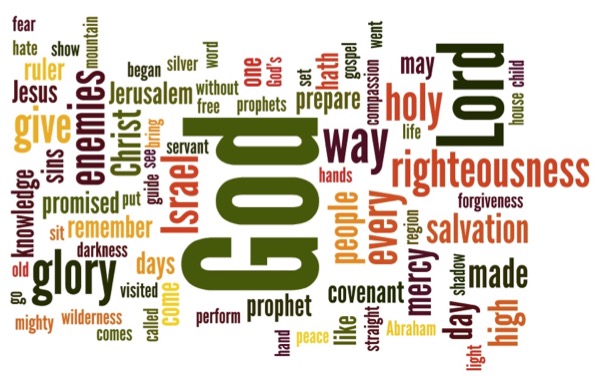2 Advent
A vivid and forceful mention of the mass migration from Iraq, Afghanistan, Syria, northern Africa, and other places to the shores of Europe and other Western nations should be quite enough to outlaw happy Christmas carols in this Advent season. People leave their homeland because of war, persecution, terrorism, and desperate poverty. It is a grueling and dangerous journey from ills known to hopes mixed with fear and anxiety. Hosting nations will find their hospitality stretched and tested; unfounded prejudices are not easily contained. A humanitarian crisis of unimaginable scale is unfolding.
| Bar. 5:1-9 or Mal. 3:1-4 • Cant. 4 or Cant.16 Phil. 1:3-11 • Luke 3:1-6 |
Today we remember the migration of the children of Israel from their exile in Babylon to their homeland, a migration permitted under the rule of Cyrus, king of Persia. They felt their exile as a punishment, they wept in bitter sorrow, they struggled on the path toward home when providence arrived. It was bitter and slow. But hope was present in their steps, in the risks they took, in the land they remembered and planned to renew. In all this bitterness, there was something beautiful at work, the beauty of persistent hope. The prophet Baruch says, “Take off the garment of your sorrow and affliction, O Jerusalem, and put on forever the beauty of the glory from God” (Bar. 5:1). He sees sorrow and suffering and exhaustion as something real, but not the skin on their backs, not the marrow of their bones, and not a genetic destiny. Sorrow and affliction may be thrown off and replaced with robes of righteousness, a headdress of diadems, and divine splendor (Bar. 5:2-3). Baruch speaks for God, recreating the landscape: mountains and hills lowered, valleys lifted, a path secured, the shading woods emit a fragrant hope. The people will arrive.
The journey is hard, the arrival harder. As they build a city and a temple, the Lord comes. “Who can endure the day of his coming, and who can stand when he appears? He is like a refiner’s fire and like a fuller’s soap; … He will purify the descendants of Levi and refine them like gold and silver” (Mal. 3:2-4). They sowed with tears, but reap with joy in the promise of a beautiful homecoming. But they find refining fire at the center of their dream. Is this a contradiction?
The city is civic order and the temple the place of prescribed religious duty. Consider a story: “Abbot Lot came to Abbot Joseph and said, Father according as I am able, I keep my little rule, and my little fast, my prayer, meditations and contemplative silence; and according as I am able I strive to cleanse my heart of thoughts: now what more should I do? The Elder rose up in reply and stretched out his hands to heaven, and his fingers became like ten lamps of fire. He said: Why not be totally changed into fire?” (Sayings of the Desert Fathers, trans. Thomas Merton). The judgment of the just judge is enlightenment.
In Advent we are each to make our way along a prepared path, to John and his baptism of repentance for the forgiveness of sins. Yet our little bath is not enough. “He will baptize you with the Holy Spirit and fire” (Luke 3:16). There is no escaping. “For everyone will be salted with fire” (Mark 9:49). This purifying, however, is good for one and for all: “Have salt in yourselves and be at peace with one another” (Mark 9:50).
Look It Up
Read Phil. 1:6. Homecoming and cleansing: God will bring it to completion.
Think About It
The bush was blazing, yet it was not consumed. Put your head back, open your mouth, and swallow the flame that rests just over you. You’re better when you burn.










